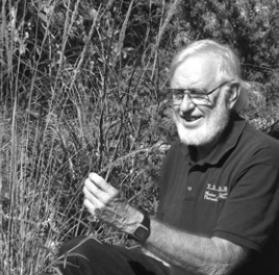Nature Up Close---Observing Little Things of Wonder
In the forward to A Sand County Almanac, Aldo Leopold wrote, "There are some who can live without wild things, and some who cannot. These essays are the delights and dilemmas of one who cannot." While I can't aspire to match the beauty of Leopold's words, he certainly captures my sentiments.
We are all familiar with the phrase, "Stop and smell the roses," but many of us seldom, if ever, do. Our lives are too busy, too hectic, too scheduled, too indoors. As one who is lucky enough to have retired to this beautiful place with the time to smell some roses, I can only regret not having found the time to do so more often earlier in life. And so, I urge everyone to spend more time outside, just looking, watching, learning and enjoying the natural world.
Here is just a tiny fraction of the delights and dilemmas I have observed around our home.
I think it is fascinating to watch the beautiful large yellow and black garden spider (Argiope aurantia) sit astride the center of her large web with the heavy zigzag of silk in the center and then see her dash into action when an insect smashes into the web, entombing the victim in a silk cocoon in seconds.
It is also delightful to watch a praying mantis watching you as you walk around it. There is just something endearing about an insect that can turn its head to follow you.
There is nothing quite so much worth doing as watching the antics of the wren as it hops around all of the porch furniture and potted plants in search of bugs or tidbits to make a nest.
I never cease to be fascinated each spring as we take daily walks around the house to observe the emergence of new life and the greening of the world. Every year, something is in greater abundance than before, and something is likely missing as well. Nature is never dull.
It is always a joy when walking around or disturbing the leaf litter to see a skink scurrying for cover, or to watch a Texas spiny lizard watch me as I approach in order to decide if I am a threat and if so when to run for cover. It seems they get bolder as the year progresses and they learn we are not out to get them.
When it has been bone dry for months, and then we get a hard rain and have puddles around, where do the water striders come from that skate across the surface of the water searching for other bugs? Where were they before the rain?
And then of course, we enjoy the antics of the fox squirrel as he does sit-ups to reach each sunflower seed in the daily handful I give him in the only feeder he can get to. There is the rock squirrel that lays out spread-eagle on the cool concrete floor of the porch on a hot afternoon.
Fortunately, everything doesn't bloom at once, so it is always interesting to watch as the time for each different species to bloom finally arrives just as others are finishing their time. Something is always blooming, much to the delight of the hummingbirds, bees and butterflies, and something is always going to seed, pleasing the lesser goldfinches very much.
And then there is the rain. As someone who grew up in dry West Texas, I have always enjoyed just looking and listening and smelling the rain. But it is more than just filling up the senses; the rain brings optimism, the feeling that the future will be brighter, sweeter.
It is sad that so many of today's kids never learn the joys of holding a frog, or watching a butterfly emerge from a cocoon, or hearing a pair of hawks talking to each other as they soar across the sky, or experiencing the peacefulness of just sitting quietly under a tree in the woods.
There is a book, Last Child in the Woods by Richard Louv, in which the author talks about saving our children from "naturedeficit disorder" where kids not only grow up with little or no knowledge or experience of the natural world, but are actually afraid of being outside.
If you have kids, I urge you to make sure your kids don't suffer from his disorder.
Until next time…..
Jim Stanley is a Texas Master Naturalist and the author of the books "Hill Country Ecology," "Hill Country Landowner's Guide" and "A Beginner's Handbook for Rural Texas Landowners." He can be reached at <jstmn@ktc.com>. Previous columns can be seen at <www. hillcountrynaturalist.org>, or at Riverside Nature Center at <https://riversidenaturecenter. org/past-blogs-from-a-friend/>.

